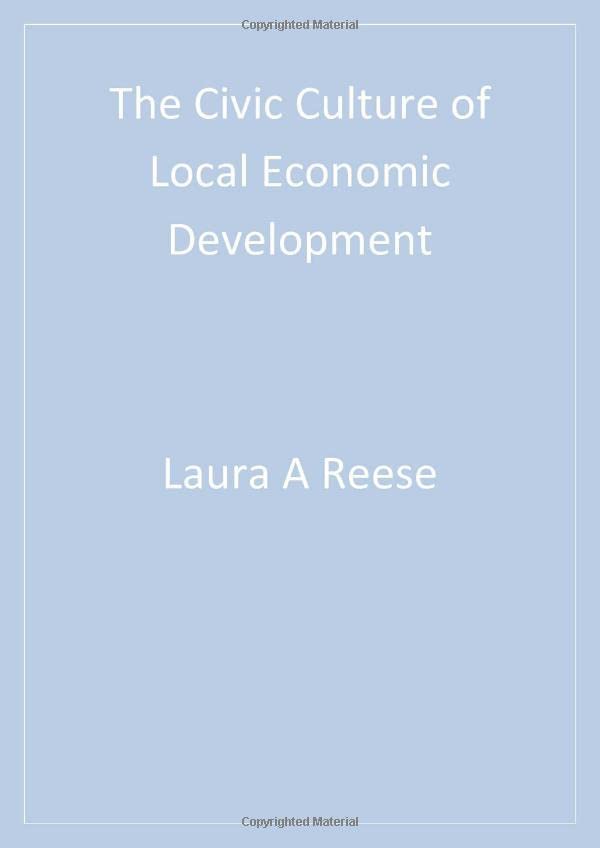The Civic Culture of Local Economic Development
Availability :
In Stock
₹ 9,007.20
M.R.P.:₹ 11259
You
Save: ₹2,251.80 (20.00% OFF)
(Inclusive
of all taxes)
Delivery:
₹ 0.00 Delivery charge
Author:
Laura A Reese
Publisher:
SAGE Publications Inc
Edition:
1st Edition
ISBN-13:
9780761916901
Publishing Year:
2001-10-01
No. of Pages:
416 pages
Weight:
650 grm
Language:
English
Book Binding:
Hardback











